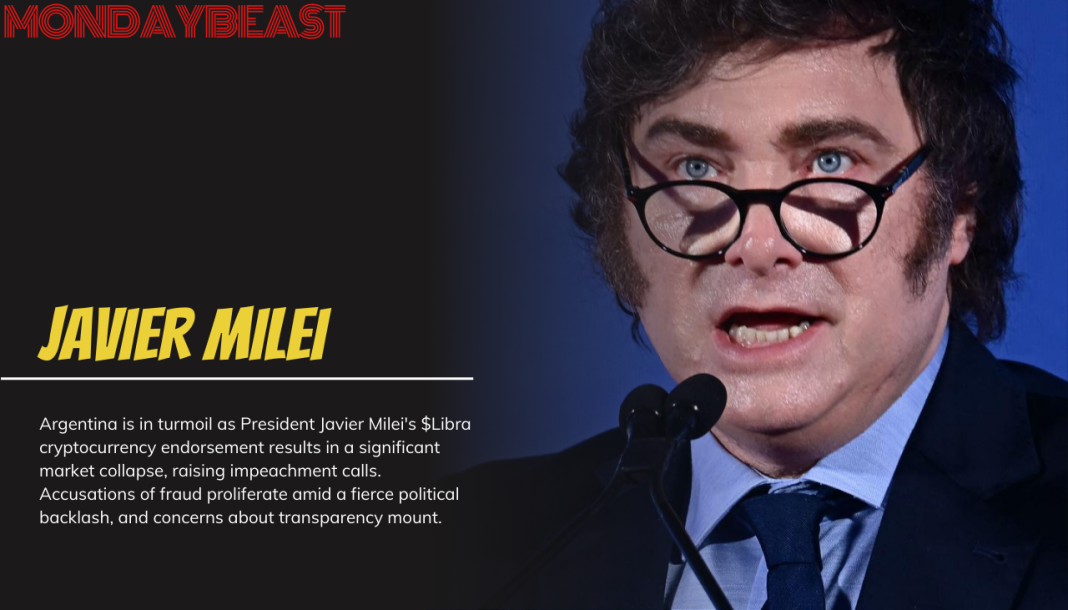Argentina is grappling with a political storm. President Javier Milei’s endorsement of the $Libra cryptocurrency triggered a sudden collapse, leading many to call it a financial ‘rug pull.’ But what does this mean for Milei’s presidency?
On Friday night, Milei heralded $Libra as a path to economic recovery. He boasted it would boost growth by aiding entrepreneurs. Many in Argentina saw hope in his words. It seemed like a lifeline amid economic despair.

Yet just hours later, the token crashed dramatically, prompting accusations of fraud. People across Argentina were left to wonder, how could this happen?
The opposition is calling for Milei’s impeachment after the fiasco. Lawmakers are expressing outrage over the president’s involvement. One lawmaker described the situation as “embarrassing on an international scale.” It raises questions about accountability in leadership.
Milei quickly deleted his glowing post about $Libra. In doing so, did he dodge responsibility, or did he genuinely not know the project’s details? His critics argue this incident shows a troubling pattern. It brings to mind the infamous Ponzi schemes that have plagued countless hopeful investors.

Economists are now analyzing the fallout from this digital disaster. The Argentine fintech chamber has labeled the incident a potential scam. What if the token was designed to inflate and collapse?
Lawyers have filed fraud complaints against Milei. They argue he played a crucial role in this alleged scheme. In many ways, this seems like a classic case of misplaced trust. When a leader endorses something, citizens naturally assume that it comes with credibility.
Amid this chaos, former president Cristina Fernández de Kirchner chimed in. She blasted Milei for promoting a cryptocurrency linked to dubious origins. Her comments highlighted the risks associated with such investments. What kind of oversight is necessary for financial ventures in politics?

Opposition leaders aren’t the only ones weighing in on this debacle. Latin American leaders are voicing concerns. Mexico’s president, Claudia Sheinbaum, echoed worries about Milei’s actions. This scandal could potentially reverberate beyond Argentina’s borders.
As Milei defends himself, he blames the backlash on his opponents. He labels them “filthy rats of the political caste.” But can he effectively shift the narrative? Or will this spiral into a broader credibility crisis? The stakes are high, especially ahead of important midterm elections.
A political analyst suggests that Milei needs to act quickly. He must provide a comprehensive explanation to quell rising doubts. Unfortunately, it appears that Milei’s administration is more focused on damage control than transparency.
In recent years, cryptocurrency has exploded in Argentina. Citizens have flocked to digital assets in hopes of preserving their wealth. Yet now, that trust is being tested. How should voters approach financial endorsements from their leaders?
With the future of Milei’s presidency now uncertain, many are left wondering. Can he repair the damage caused by this collapse? Or will it leave a lasting stain on his reputation? The real question is: how will this impact Argentina’s battle against inflation and economic decline?




